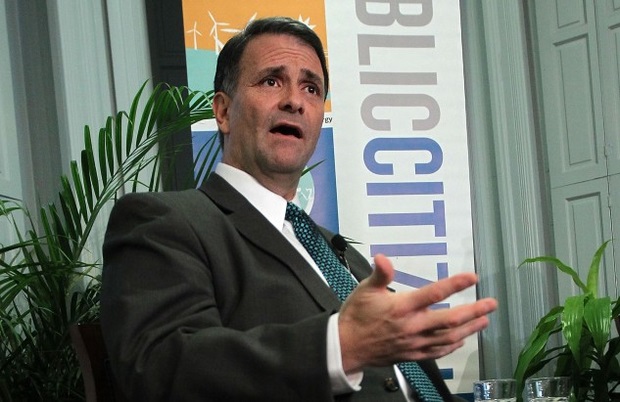Lobbyist Conviction Disclosure Bill Heads to President’s Desk
- Disgraced lobbyist Jack Abramoff was on sponsors’ minds
- Listing of crimes on lobby disclosures would be required
Bipartisan legislation that would require registered lobbyists to disclose prior convictions is on its way to President Donald Trump’s desk for his approval. The measure was drafted with disgraced lobbyist Jack Abramoff, who pleaded guilty in 2006 to felony corruption charges, in mind.
The House voted 391-0 to clear the Justice Against Corruption on K Street Act (S. 2896) — nicknamed the JACK Act — which the Senate passed by unanimous consent earlier this year.
If signed into law, the measure would require lobbyists convicted of certain crimes to disclose such convictions on registration and quarterly activity reports filed with the House and Senate. The date of conviction and a description of the offense would have to be included to the disclosure forms lobbyists are already required to submit.

The list of convictions that would require disclosure include: bribery, extortion, embezzlement, illegal kickbacks, tax evasion, fraud, conflicts of interest, making false statements, perjury or money laundering.
BGOV Bill Summary on S. 2896, Lobbyists Ethics Crime Disclosures
Critics say the law falls short of substantive change that’s needed in lobbying disclosure law.
“There’s so much to do to fix in the Lobbying Disclosure Act and this doesn’t do it,” said Craig Holman, a lobbyist for government watchdog group Public Citizen.
Abramoff has become the poster child for double-dealing in Washington. Lobbyists, lawmakers and staff became ensnared in the scandal that defrauded Indian tribes of millions of dollars and 24 people were eventually convicted on corruption or bribery charges.
It ultimately led to Congress revamping lobbying laws that banned lobbyists from giving gifts to officials and expanded disclosure requirements. The JACK Act is a further amendment to the rules governing lobbyists as set out by the Lobbying Disclosure Act (LDA).
Reps. Andy Biggs (R-Ariz.) and Hakeem Jeffries (D-N.Y.) sponsored the original House version ( (H.R. 7104) and Sens. John Kennedy (R-La.) and Joe Manchin (D-W. Va.) sponsored the companion legislation in the Senate.
When the sponsors of the legislation evoked Abramoff as inspiration for the bill, they note that he registered as a lobbyist for the Republic of Congo last year.
“This idea is simple: If you have been convicted of a felony like bribery, extortion, embezzlement or tax evasion, you should have to disclose that when registering to become a lobbyist,” said Kennedy. “Political leaders and businesses need to know the backgrounds of those who are trying to influence public policy.”
“The bill’s title refers to Jack Abramoff, who was convicted of tax fraud and bribery. Jack re-registered as a federal lobbyist in 2017 and did not have to include his criminal history on his registration. The JACK Act will provide the public with much needed transparency and accountability over Congress’ actions,” according to a joint press release from the chief House and Senate supporters of the bill.
However, Abramoff registered to represent the Republic of Congo with the Justice Department, which enforces foreign lobbying disclosure, as he was required to do. The JACK Act wouldn’t affect those working on behalf of foreign clients and, if it becomes law, wouldn’t have affected his registration.
To contact the reporters on this story: Megan R. Wilson in Washington at mwilson@bgov.com; Jorge Uquillas in Washington at juquillas@bgov.com
To contact the editors responsible for this story: Katherine Rizzo at krizzo@bgov.com; Bennett Roth at broth@bgov.com; Robin Meszoly at rmeszoly@bgov.com